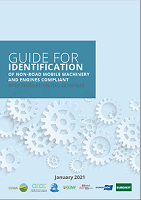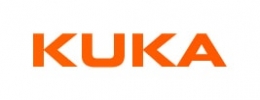
May 2017
European Commission's final report on digital skills in the workplace
The digital economy is transforming the way people work and the skills they need at work. This represents a major challenge for employers, workers and public authorities. The study presents data and policy recommendations that could support the transformation of the labour market into opportunities for all.
Main Findings
-
Digital technologies are widely used in workplaces in the European Union. 93% of European workplaces use desktop computers, 94% use broadband technology to access the internet, 75% use portable computers and 63% other portable devices. 22% use intranet platform, 8% automated machine or tools or 5% programmable robots. Larger workplaces report a higher use of digital technologies than smaller ones.
-
Most jobs require basic digital skills. Basic digital skills include being able to communicate via email or social media, to create and edit documents digital documents and to search for information, or to protect personal information online. 98% of workplaces require managers and 90% professionals (e.g. engineers, doctors and nurses, teachers, accountants, software developers, lawyers and journalists) - technicians, clerical workers or skilled agricultural workers should have at least basic digital skills. 80% of workplaces require basic digital skills for sales workers. Workplaces also often require basic digital skills for building workers (50% of workplaces), plant machine operators (34%) and even employees in elementary occupations (27%). However, there are still some workplaces that do not consider digital skills to be important for some occupations e.g. craft workers, waiters and cooks.
- Technicians, professionals (both 50%) and managers (30%) are required to have specialist digital skills, especially in larger workplaces.
- The use of ICT has increased significantly in the last five years in more than 90% of workplaces. Micro-sized workplaces are more likely to report limited increase compared to bigger ones.
- Over the last five years, investments in ICT to improve efficiency or business volume increased. These investments are more frequent in sectors with traditionally low levels of digital intensity, e.g. agriculture, manufacturing or construction.
- 38% of workplaces report that the lack of digital skills has an impact on their performance. Loss of productivity (46%) and decrease in the number of customers (43%) are the main negative impacts.
- 15% of workplaces report employees lack digital skills. Digital skills gaps are more likely to be found in high- and medium skilled than in low-skilled jobs.
- 88% of workplaces have not taken any action to tackle the lack of digital skills of their employees. Training is the most common action undertaken. High costs seem to be the main barrier encountered when undertaking actions to deal with digital skills gaps.
Recommendations
Apart from analysing digital skills in the workplace the study lists a number of recommendations that have been formulated in consultation with experts and stakeholders.
2. Promote access to digital technologies, particularly for micro and small sized companies. Loans, grants and other mechanisms should be used to enhance and support access to digital technologies.
3. Expand the availability of digital skills through the education and training system. Programmes at all levels and sectors of education should be updated and digital skills should be part of the core competences required at every level.
4. Promote access to training to employers through their professional or sectoral organisations and associations, or through governmental channels.
5. Build multi-stakeholder partnerships and agree on a digital skills strategy.
6. Consider diversity and avoid the ‘one-size fits all’ approach in the strategy.
7. Include digital skills in a wider skills strategy in which other transversal skills relevant to employers such as soft skills and communication skills are included.
8. Provide access to funding for digital technologies and digital skills development.
9. Reduce the digital divide, focusing in particular on the categories of individuals who do not possess digital skills and are consequently at risk of marginalisation not only in the labour market, but also in day-to-day life, which can contribute to social and economic exclusion.
Background
This final report complements the intermediate report of this study “The impact of ICT on job quality: evidence from 12 job profiles” published last year, and presents mostly findings from the ‘European Digital Skills Survey’, carried out among a representative sample of 7,800 workplaces which are statistically representative of 13,803,113 workplaces in the whole European Union (EU28) in 12 economic sectors with different levels of digital intensity. These workplaces employ a total of 150,563,540 employees in different job roles.
The Digital Skills and Jobs Coalition in a nutshell
The Digital Skills and Jobs Coalition mobilises companies, non-for profit organisations, educational providers, social partners and Member States in Europe who work together to tackle the lack of digital skills in Europe. The aim is to ensure that everyone acquires the digital skills they need to remain productive and employable and included.
Further information
Industrious Brussels EU District, Avenue des Arts 6-9, 1210 Brussels, Belgium, +32 490 57 57 65
Transparency Register number: 0289344948-82














































































































